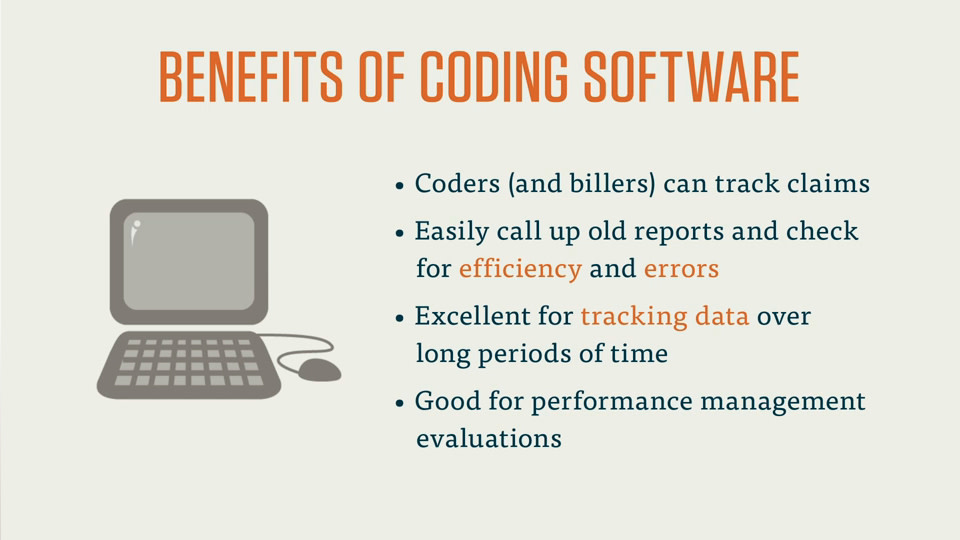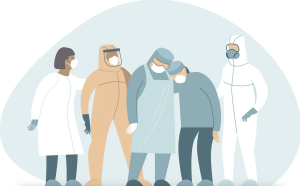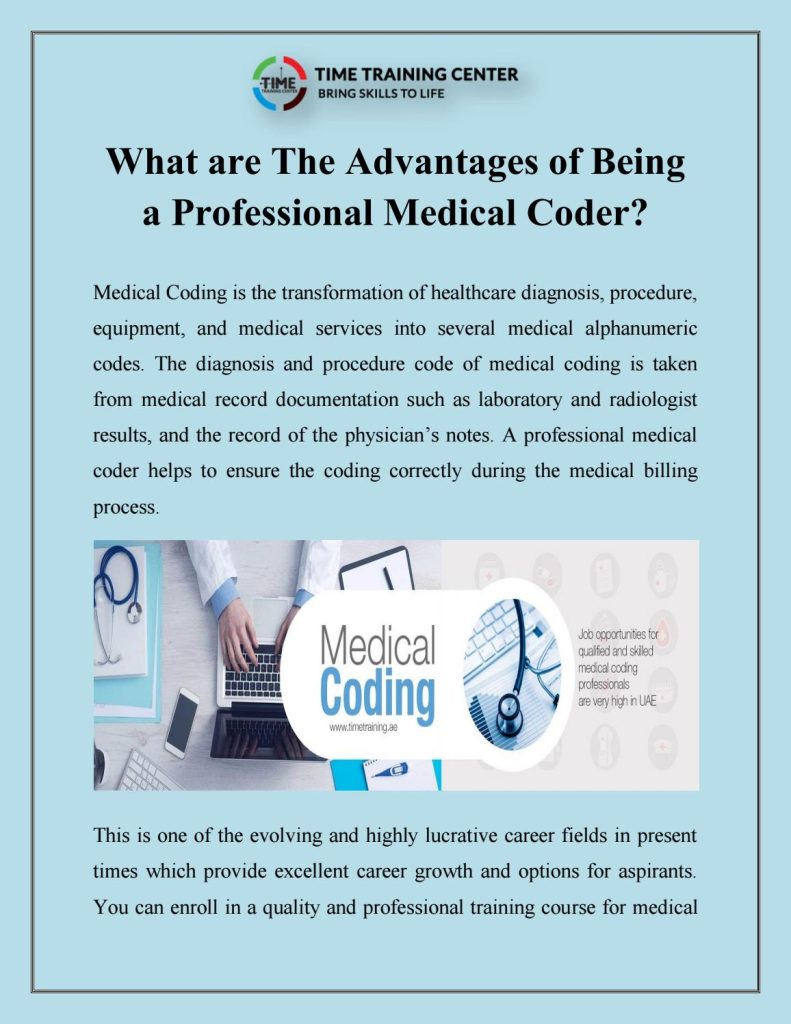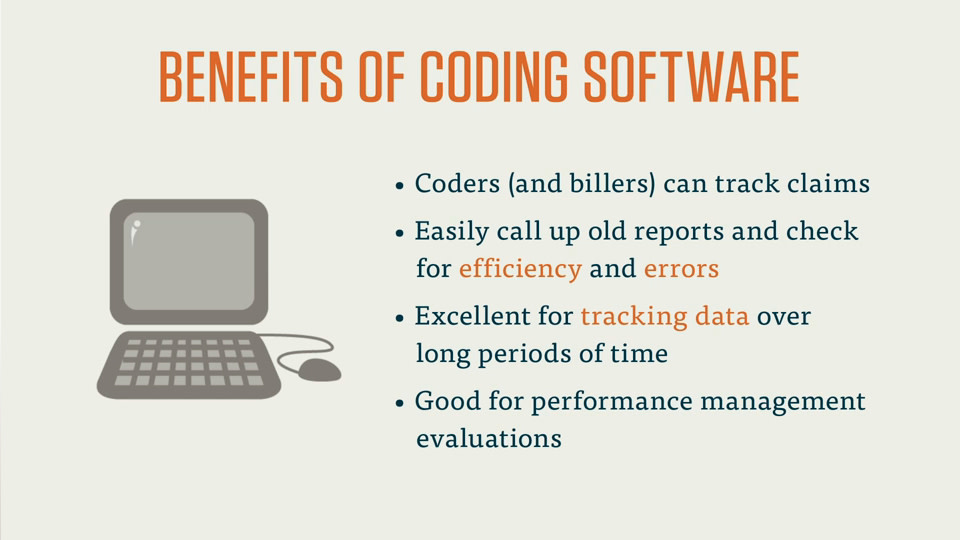In this article, you will learn about the various disadvantages of medical coding. Medical coding is an integral part of healthcare billing and record-keeping, but it also comes with its fair share of drawbacks. Understanding these disadvantages is crucial for healthcare professionals and individuals interested in pursuing a career in medical coding.
One major disadvantage of medical coding is the complexity and constant changes in coding guidelines and regulations. As medical science advances and new treatments and procedures are developed, the codes for these interventions need to be updated accordingly. This means that medical coders must constantly stay updated with the latest coding guidelines and regulations, which can be a daunting task. Additionally, the complexity of coding systems, such as ICD-10, can make it challenging for coders to accurately assign codes and ensure proper reimbursement. Another significant disadvantage of medical coding is the potential for errors and inaccuracies. Manual coding is prone to human error, and even with the use of electronic systems, there can still be coding mistakes. These mistakes can lead to incorrect billing, denied claims, and financial losses for healthcare providers. It requires attention to detail and accuracy to avoid errors, making medical coding a high-pressure job.

Introduction
Medical coding is an essential function within the healthcare industry. It involves translating medical diagnoses, procedures, and services into alphanumeric codes. These codes are used for various purposes, including billing, reimbursement, research, and healthcare analytics. While medical coding offers several benefits, it also comes with its fair share of disadvantages. In this article, we will explore some of the drawbacks associated with a career in medical coding.
Lack of Job Security

Competition in the Job Market
The field of medical coding is highly competitive. With advancements in technology and an increasing number of individuals entering the profession, job opportunities are becoming more limited. As a result, securing a stable job in the industry can be challenging, especially for newcomers. The sheer number of aspiring medical coders means that candidates must possess exceptional skills and qualifications to stand out from the competition.
Automation Threat
One of the biggest disadvantages of medical coding is the threat of automation. As technology continues to advance, there is a growing concern that coding tasks will be automated, reducing the need for human coders. While automation can streamline processes and increase efficiency, it also poses a risk to job security within the industry. As coding software becomes more sophisticated, there is a potential for job displacement and a decline in demand for human coders.
Outsourcing Potential
In addition to automation, medical coding jobs are at risk of being outsourced overseas. Many countries offer cost-effective coding services, making it an attractive option for healthcare organizations looking to reduce expenses. Outsourcing can lead to lesser job opportunities and increased competition for coders within the domestic market. It also raises concerns about the quality and accuracy of outsourced coding work, as language barriers and cultural differences may impact the coding process.
Complexity and Constant Learning
Extensive Knowledge Required
Medical coding is a complex and highly specialized field that demands extensive knowledge and understanding of medical terminology, anatomy, and coding guidelines. Coders must be well-versed in multiple coding systems, including ICD-10-CM, CPT, and HCPCS Level II. The learning curve for medical coding is steep, requiring significant time and effort to acquire the necessary expertise.
Frequent Code Updates
Another challenge faced by medical coders is the frequent updates and revisions to coding guidelines. Codes are regularly updated to reflect changes in medical practices, technologies, and regulations. Coders must stay updated with the latest code changes to ensure accurate and compliant coding. Keeping up with these updates can be time-consuming and requires continuous learning and training.
Different Coding Systems
Medical coding involves working with various coding systems, each serving a specific purpose. This multi-coding system approach adds complexity to the job, as coders must be proficient in understanding and applying the appropriate codes for different scenarios. Switching between coding systems can be challenging and requires a comprehensive understanding of each system’s rules and conventions.
High Pressure and Stress

Strict Deadlines
Medical coders often face strict deadlines when it comes to coding medical records. Healthcare providers rely on timely and accurate coding to process claims and receive reimbursement. The pressure to meet deadlines can be intense, especially during peak periods or when there is a backlog of records to code. Coders must work efficiently to ensure codes are assigned accurately within the given time frame.
Accuracy and Accountability
As medical coding directly impacts reimbursement, insurance claims, and patient care, there is a high level of accountability associated with the role. Medical coders must ensure that the assigned codes reflect the patient’s medical condition and the services provided accurately. Even small errors can have significant consequences, leading to claim denials, financial loss for healthcare providers, and potential legal consequences.
Potential Legal Consequences
Medical coders must adhere to strict coding guidelines and regulations to maintain compliance with federal and state laws. Failing to comply with these regulations can result in serious legal consequences for both the coder and the healthcare organization. The risk of lawsuits and penalties adds to the already high pressure and stress levels experienced by medical coders.
Long Working Hours

Extended Shifts
Medical coding jobs often require working long hours, especially in healthcare facilities that are open 24/7. Coders may be required to work night shifts, weekends, and holidays to meet the demands of the job. The irregular and extended working hours can disrupt work-life balance and take a toll on personal commitments and relationships.
Overtime and Weekend Work
To cope with the workload and meet strict deadlines, medical coders may need to work overtime or on weekends. The additional hours can lead to burnout and fatigue, impacting overall job satisfaction and well-being. Working beyond regular hours also means sacrificing personal time and leisure activities.
On-call Duties
In some healthcare settings, medical coders may be assigned on-call duties, where they are required to be available for coding emergencies or urgent requests. Being on-call adds an element of unpredictability to the job, as coders must be ready to respond to coding needs at any given time. This can further disrupt work-life balance and contribute to the high stress levels associated with the profession.
Monotonous and Repetitive

Continuous Data Entry
Medical coding involves a significant amount of data entry. Coders spend hours reviewing patient records, extracting relevant information, and assigning appropriate codes. The repetitive nature of this task can become monotonous and tedious over time. The constant exposure to large volumes of data can also increase the risk of errors and decrease job satisfaction.
Dealing with Similar Cases
In medical coding, coders encounter a wide range of medical cases, but not all cases are unique or interesting. Coders often come across similar cases with similar diagnoses and procedures, resulting in a lack of variety in their work. This lack of diversity and novelty can contribute to a sense of monotony and limit opportunities for creativity and growth.
Limited Creativity
Medical coding is a technical and rule-based profession that leaves little room for creativity. Coders must strictly adhere to coding guidelines and accurately translate medical information into standardized codes. This leaves little scope for personal interpretation or creativity. The repetitive nature of the job, combined with the limited opportunity for creative expression, can make medical coding feel monotonous and unfulfilling for some individuals.
Emotional Toll

Dealing with Sensitive Information
Medical coders often work with sensitive patient information, including diagnoses related to serious or life-threatening conditions. The constant exposure to such sensitive information can take an emotional toll on coders. They may need to process and assign codes for challenging cases, including terminal illnesses, traumatic injuries, or mental health conditions, which can be emotionally draining.
Disturbing Medical Cases
In addition to sensitive information, medical coders may come across disturbing or graphic medical cases, such as severe injuries or traumatic events. Coders must maintain professionalism and objectivity while coding such cases, but the emotional impact of dealing with distressing situations can be challenging to manage. Coping with the emotional demands of the job adds to the overall stress and well-being of medical coders.
Lack of Patient Interactions
Unlike healthcare professionals who directly interact with patients, medical coders have limited or no patient contact. This lack of patient interactions can result in a feeling of disconnection from the purpose and impact of their work. Coders may not experience the fulfillment and rewards that come from helping and interacting with patients, which can contribute to a sense of emotional detachment.
Physical Strain

Sedentary Lifestyle
Medical coding involves working in a sedentary position for extended periods. Coders spend long hours sitting and focusing on computer screens, which can lead to a sedentary lifestyle. The lack of physical activity and prolonged sitting can negatively impact health, increasing the risk of obesity, cardiovascular issues, and musculoskeletal problems.
Eye and Vision Problems
Constantly staring at computer screens and focusing on detailed codes can strain the eyes and lead to vision problems. Medical coders may experience eye fatigue, dryness, redness, and blurred vision as a result of their daily work demands. Taking regular breaks and practicing good eye care habits is crucial to minimize the risk of eye-related health issues.
Carpal Tunnel Syndrome
The repetitive movements involved in medical coding, particularly typing and data entry, can put strain on the wrists and hands. Coders are prone to developing conditions like carpal tunnel syndrome, which can cause pain, numbness, and loss of hand function. Proper ergonomics and regular stretching exercises can help prevent these repetitive motion injuries.
Limited Career Progression

Few Advancement Opportunities
Medical coding offers limited career advancement opportunities compared to other healthcare professions. While coders can progress from entry-level positions to more senior roles, there are fewer options for vertical growth. Advancement often requires specialized certifications and additional qualifications, which can be time-consuming and demanding.
Specialization and Certification Requirements
To enhance career prospects and remain competitive, medical coders often pursue specialized certifications in specific coding systems or medical specialties. Achieving these certifications requires dedicated study and preparation. The ongoing commitment to maintaining certifications and staying updated with evolving coding practices can be demanding and costly.
Pay Scale Limitations
Medical coding is not known for offering high salaries compared to other healthcare professions. The pay scale for coders often involves a range based on experience, qualifications, and certifications. While experienced coders can earn a respectable income, the earning potential may be limited. Factors such as geographic location and the organization’s size can also impact salary levels.
Conclusion
While medical coding plays a crucial role in the healthcare industry, it is important to recognize the disadvantages that come with the profession. The competition in the job market, the complexity and constant learning required, high pressure and stress levels, long working hours, monotonous and repetitive nature of the job, emotional toll, physical strain, and limited career progression are all considerations to be aware of when considering a career in medical coding. Despite these challenges, medical coding can still offer rewarding opportunities for those who are passionate about the field and willing to overcome these disadvantages through continuous learning and professional growth.
